Being text of the welcome address delivered by Andrew Obinna Onyearu, NAS Capoon, National Association of Seadogs, at the 8th Prof. Wole Soyinka Lecture, NICON HILTON Hotel, Abuja, Nigeria – Tuesday, 12th July, 2005.
A Dream Achieved!
On 29 June 2005, Professor Soyinka wrote, in United Kingdom’s version of “The Guardian”, an article that he titled “A Dream Perverted”. The dream to which he referred was his role and involvement in the formation of this nation’s and indeed Africa’s first campus fraternity, ours. The perversion to which he referred was the degeneration of fraternal culture in young persons – purely by the actions of imitator or pretender organisations, incompetent even in their imitation as they were and still are – into a regime of brigandage and savagery of the sort that has effectively destroyed confidence amongst young people in Nigeria in the delivery and the benefits of education, usually the foundation for the present and future. Professor Soyinka observes in that article that
“…their ethos – if one can call it that – is of such a nature that to describe them as fraternities is as appropriate as calling a serial rapist a sex therapist. They established competitive reigns of terror on campuses, engaging in activities that occasionally spill into the towns. They extort, they rape, employ acid to disfigure women who have spurned them, and serve as enforcers and thugs to politicians”.
It was the gravity of this perversion over the years, that has led him to mount time after time after time, a campaign of education; of tutoring; of embellishment and of elucidation to assist the mischievous and ill-informed form true and different views about the National Association of Seadogs(Pyrates Confraternity) – its origins, principles, beliefs and practices – and the differences from those groups and organisations with which it has, sadly, been tanned with the same brush. The latest of these events took place on 12 July 2005.
For the last 8 years, our organisation has put together an annual lecture which has now come to be known as the Professor Wole Soyinka lecture series. This lecture is a socio-academic event of national and international importance, attracting eminent people from the national and international communities and all walks of life concerned with the discussion, formulation and development of social, economic and political policies as they pertain to Nigeria. This event is our own way of acknowledging his achievements over many years and in recognition of his selfless and untiring effort to better the Nigerian nation; the literature of education and the advancement of social engineering within the domestic and international communities. It takes place either on the day of or immediately around his birthday – 13 July.
At each lecture, an eminent personality of noteworthy and impeccable credentials as a social commentator in both word and deed is invited to make a presentation on topical and national issues. Last year, Rear Admiral (retired) Ndubuisi Kanu discussed “Nigeria – The Unfinished Business”. Professor Eskor Toyo gave the 2003 lecture in Calabar. In 2002, Professor Olufemi Taiwo gave that year’s lecture in London and discussed “Of Intellectuals, Politics and Public Policy Making in Nigeria”. In 2001, Nigeria’s leading lawyer for the last 4 decades, the late Chief Rotimi Williams, SAN gave that year’s lecture when he spoke on “The Nigerian Nation; Prospects for survival”.
CB (as we call him) has been the moving force behind the National Association of Seadogs (Pyrates Confraternity) for the last 52 years. We know that he had a very happy birthday and add the prayer that God will grant him many more years to experience and enjoy the realisation of his dreams for humanity, especially that great country – Nigeria. He was 71 years on 13 July 2005.
This year’s event, themed “Cults, Society and Impunity” took a different form from those of previous years. It entailed a more expanded discussion and will, and for the first time in the event’s history, involved Professor Soyinka in a discursive form. He did so in characteristic authoritative form, illuminating a quite serious concern with the poise of a ballerina that only he can graphically execute. He also did so, amongst other expectedly informative analysis, by screening a 15-minute film first shown to the world on 29 June 2005 by Channel 4 News in the United Kingdom, in which he chronicled some of key factual issues pertaining to the culture of violence and cultism. As a social ill of ruinous effect, violence in society congregated under the mis-description of “cultism” is bested only by one or two other social ills to the dubious and undignified title of the most devastating problem currently confronting social and educational development of young people in Nigeria.
At the event, Professor Otubanjo, a delegate at the recently concluded National Conference appeared to suggest that both Professor Soyinka and the organisation had a moral duty to lead the fight against the proliferation of cultism given his – and its – role in the formation and propagation of the first Campus fraternity in Nigeria, indeed Africa. That comment was adequately met by Professor Soyinka, just as he had done on scores of occasions in the past, in the analysis that such correlation must be derive from logic. He asserted the illogicality of ascribing to the Prophet Mohammed, the excesses of Moslem fundamentalists purely for the reason that he founded Islam or the absurdity of such an allegation against Jesus Christ for the felonies of priests expelled from the church for aggravated sexual offences against the person. Of one particular explanation, not directly referred to on the day, we will never tire to repeat. In a lecture entitled “The Descent of the Barbarian and the end of the Collegial” on the occasion of an event at which he was speaking in honour of then retiring Mr Justice Kayode Esho of the Supreme Court he stated:
“… but let it be clearly understood that this, to me, frankly monotonous intervention, is not offered in defence of an innovation that requires absolutely no defence – those who are born with holes in their heads will always remain porous to the inundation of facts. I refer to this irritant strictly within the larger context of an exhortation to that section of society that insists on hiding its collective head in the sand, like the proverbial ostrich, while perversions are being inflicted on its orifice. Those who blame today’s advent of the barbarians on the first college fraternity –the Pyrates – that was founded in this nation, perhaps on the entire continent, merely advertise themselves as moral cripples who try to ward off bad news by fabricating distant alibis. It is far more honest to confess a failure of social will than to seek excuses in some distant origin, one that bears virtually no resemblance to the conduct of mimic upstarts. Such commentators may believe that they know their history, but it is fragmented and superficial history, distorted by the psychosis that goes with surrender to evil forces. Even more critically and relevantly to the collective responsibility of finding a solution, they acknowledge a dangerous ignorance of the society they live in, or the ability to situate a malaise in its appropriate social context. They ignore the contextual workings of social decadence, such as how even time-honoured institutions – philanthropic, cultural, all the way to the modern NGOs – are being impersonated by corrupt versions in tune with the total collapse of society. Nothing lasts in this nation, nothing. Religious institutions – be they Moslem or Christian – are filled with charlatan offshoots, many of which are demonic variants, or else purely commercial ventures, marketing sanctimonious ness with the same sales patter as the vendor of designer clothes or cosmetics…”
Two members of National Association of Seadogs (Pyrates Confraternity) as outriders that floated in Nnamdi Azikwe as Chancellor of University of Lagos. Left is Prof Olatunde Makanju, while on the right is (name required).
Ours is a great organisation. It is an organisation rich in history, at times tempestuous. It is an organisation made up of Nigerians of the widest possible breadth. The organisation is non-politically affiliated; non-religiously influenced; with its fundamental operational objectives steeped in the upholding of human dignity and the promotion of a humane and progressive society where no one is a victim of colour, race, sex, tribe or religious beliefs. The goals that we have are enshrined in the Pyratical Creed and remain the pursuit of a just and egalitarian society in which the strong protects the weak and all have equal access to opportunity for the realisation of each person’s potential. The societal ills that gave root to the birth of our organisation remain real obstacles to the positive development of our nation.
Since our inception, we have continued to grow from strength to strength. This growth has taken NAS to virtually all the states of the federation and the federal capital, Abuja. We have permanent international presence with functional logistical infrastructure and branches in the United Kingdom, Holland, Japan, South Africa, Canada and 5 branches in the United States of America. By our credible and verifiable record, we are undisputedly more global than most Nigerian organisations including political parties existing within and outside dual-political Nigeria. Our global outreach made it possible to muster international support and opinion along with some other progressive organisations against the last military dictatorship that for years pauperised the entire citizenry. As an organisation of professionals across various disciplines, we have continued to pursue those ideals by proactive engagement in social-political advocacy as well as charting the course of community causes in the pursuit of ideals in the various communities we find ourselves. In essence, our verifiable track record is one that highlights and manifests a harvest of Humanistic Ideals.
Amongst the numerous testimonies that we have received in relation to our work, February 14 has been declared “National Association of Seadogs Day” in Oakland, California, United States in recognition of our contribution to the social development, stability and prosperity of the city of Oakland. In the words of Council woman Desley Brooks, of District 6, City Of Oakland:
“… its membership (NAS) includes many community leaders, professional business people and many informed and active citizens whose accomplishments have contributed to the health, stability and prosperity of the greater Oakland Community.
All these, against a background of establishment hostility – from university administration to military and even civilian governments – of the kind that could have destroyed many lesser entities. Our resilience in the light of this political asphyxiation has ensured that we remain one of the most enduring legacies of the development of youth in Nigeria. This organisation and its principles have, over the 50 year period, directly and positively influenced no less than 30,000 Nigerians by the effect of membership and indirectly, many more. On the back of the facts we have referred and more information available in the public domain, it is manifestly evident that the dream that he shared, nurtured and have supported, along with the other members of the Original Seven has NOT been Perverted. It has been Achieved.
The menace of violence in higher institutions of learning and its effect on education has been much discussed. The literature in relation to the unfortunate subject has been much circulated and is readily available. The whole idea of this event was to illuminate the subject further, this time closer to the seat of Government in Abuja. NAS has committed huge resources in relation to time and man hours in organising seminar upon seminar on the subject of violence in higher institutions of learning and the incidents of “cultism” in Nigeria. The diagnoses of the problems have been performed from time to time, on these occasions. Professor Soyinka’s involvement in this event was yet another example of the huge resources that he has, himself, committed to this subject. It is apt to describe, in his words, what we as an organisation see as the end product of the deterioration and decay that this unchecked menace has brought about. In the same lecture already referred, Professor Soyinka very fittingly observes that:
“… In the degeneration of campus culture, the public is reaping the rewards of its own degenerate existence: the corruption of values, the open violence, the dishonesty, the political perfidies, the violence of military coups, the progroms that led to the Civil War, the Civil War itself and its conduct, the marginalization of millions both as individuals and as entities. Campus violence echoes the epidemic of assassinations that has turned the nation psychotic with terror, the religious fundamentalist insanities that laid siege even to the nation’s capital, oversaw resurgent massacres of innocents on religious grounds, a continuance of the politically inspired anomie that has resulted in ecumenical cities like Jos and Kaduna reduced to sacrificial altars of religious sectarianism, innocent drivers incinerated in their vehicles for carrying out routine duties of delivery to the delirious cries of the greatness of God, simply because their consignment offended the sensibilities of zealots who unleashed the mindless from their normal state of social stupor. Campus violence is a reflection of the state implicated killings at Odi, the military massacres at Zaki Biam. The chickens have come to roost, and the destruction of collegiate life, is an echo of your failures, you the larger society with all the resources and the responsibility of leadership. When you recruit college youths into your violent brigades of party thugs at election times, when you arm them with the latest in sophisticated weaponry, do you imagine that, when excitement is slack, they will not turn these weapons against one another?…”
NAS believes that the effort made by the Nigerian government to stem the bleeding from this potentially fatal injury has been tame and cosmetic. The same will that Government has applied to the resolution of some of the nation’s seemingly more pressing problems is required. The solution, with respect, lies not in churning out one ill-prepared law after law but in a visible, proactive desire to see that the current, existing and quite competent structures are enforced. The second is that politicians amongst us have a huge burden on their consciences especially those whose obtuse, simple-minded and indiscriminate use of resources, often ill-gotten, has been applied to creating and acquiring an intellectual base of a new brand of thugs previously unavailable to them. The destruction of our educational structure is proceeding at a quite rapid rate. At this pace, nothing will be left in the next two decades. This deterioration is a matter of engaging and disturbing anxiety. It is time that we collectively collaborate it to arrest this abject decline.
Andrew Obinna Onyearu
NAS Capoon
National Association of Seadogs
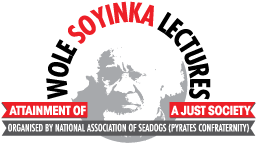
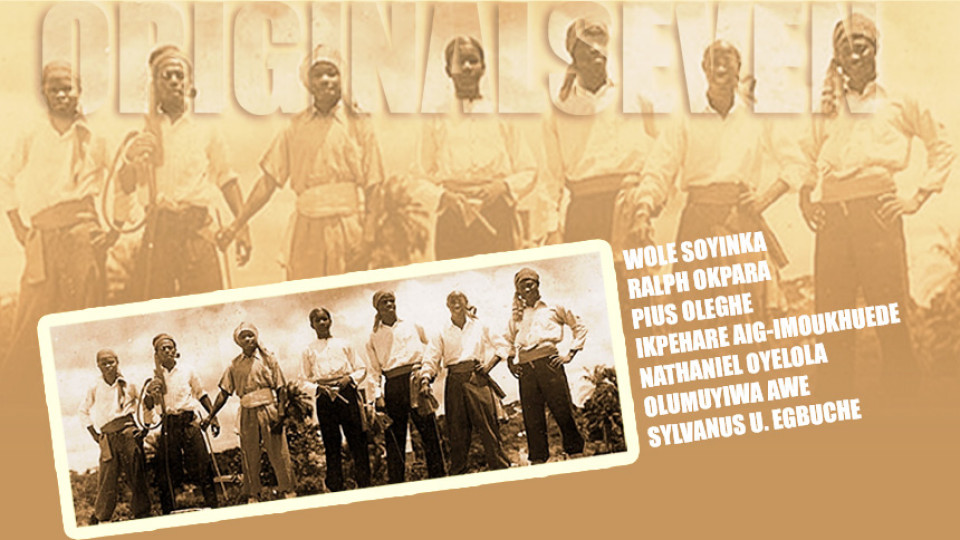

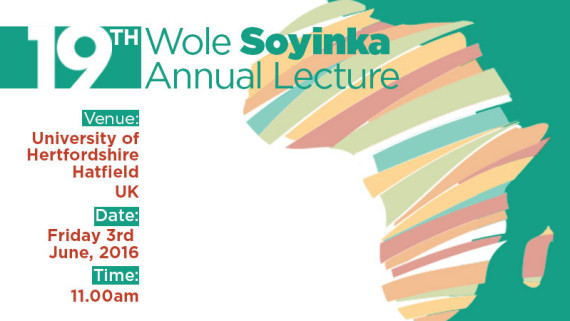
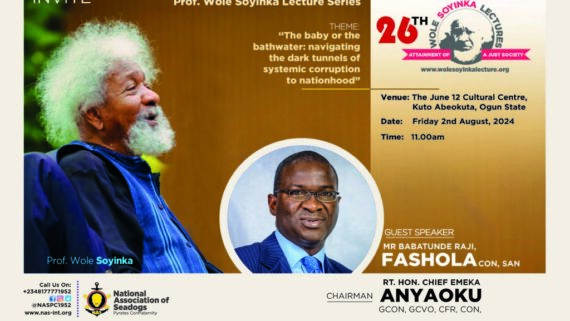
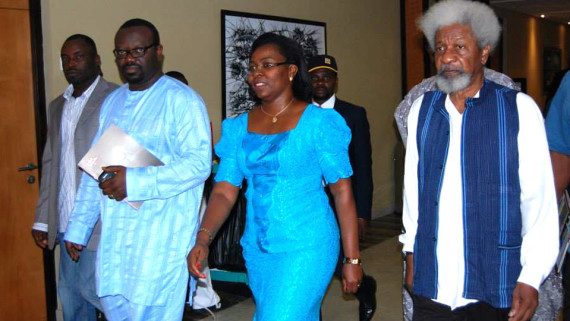
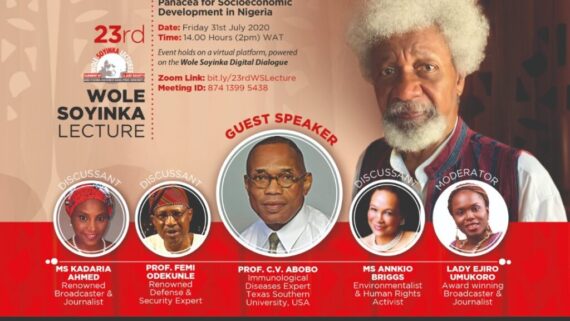
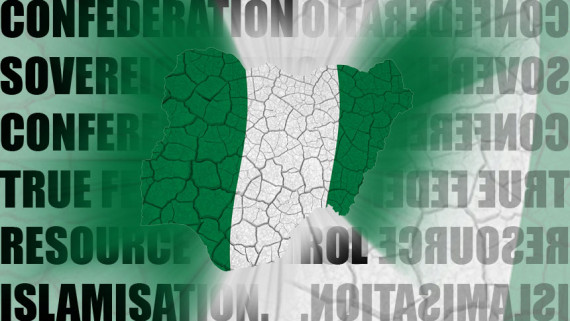

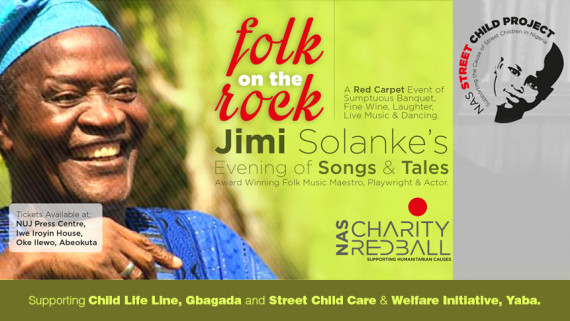
Very Apt!